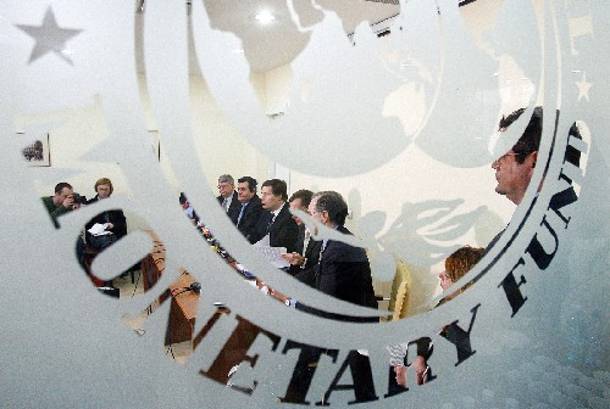Eurogroup chief Jeroen Dijsselbloem announced the decision at talks with the 19 eurozone ministers in Brussels and hailed the Greek government for all its “hard work” since agreeing a strict 86-billion-euro (USD 92 billion) bailout programme in July.
By Moneycontrol.com
Greece “fully accepted” that the hardline IMF take a role in its massive third bailout, backing away from one of the last battle lines splitting Athens and its eurozone creditors. Eurogroup chief Jeroen Dijsselbloem announced the decision at talks with the 19 eurozone ministers in Brussels and hailed the Greek government for all its “hard work” since agreeing a strict 86-billion-euro (USD 92 billion) bailout programme in July. “(Finance Minister Euclid) Tsakalotos confirmed to me that the Greek government accepts that the IMF needs to be part of the process,” said Dijsselbloem, who is also Dutch finance minister.
“It was absolutely clear to him, it was part of the agreement this summer,” Dijsselbloem said. Tsakalotos confirmed the decision in an interview with Germany’s Handesblatt newspaper, which followed a stern warning by Pierre Moscovici, the EU’s top economics affairs official, that Greece must not “play games” over the IMF. “The IMF’s participation is planned. We are sticking to this commitment,” Tsakalotos told the daily. Greece’s leftist Syriza government is taking a far softer stance with its partners as it works through a three-year rescue programme agreed after six months of bitter talks that nearly saw Athens evicted from the euro.
But Prime Minister Alexis Tsipras had previously argued that the IMF was no longer needed, in defiance of the eurozone’s most powerful member Germany and other hardliners such as Finland and the Netherlands. In July, the Greek government signed its strictest-ever rescue programme after the country looked to be on the brink of crashing out of the eurozone. The Washington-based IMF teamed up with the EU on Greece’s first two bailouts in 2010 and 2012, but held back from the latest one citing insufficient reform pledges on pensions from Athens and Europe’s reluctance on restructuring the country’s huge debt pile.
The IMF said it was ready to support Greece but did not give any timescale for a return to Athens. “We remain engaged in policy discussions with the Greek authorities on a continuous basis since the summer,” IMF spokesman Gerry Rice said in Washington. “Looking forward we stand ready to support Greece not only with advice, not only with technical assistance but also with financing once (…) a comprehensive set of policies and credible debt relief are in place. We need the both legs.” Tsipras said in December that funding from the institution, known for its hard line, was not necessary and that IMF expertise was also no longer needed.



















